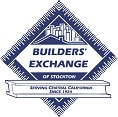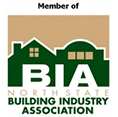
We're here for you.
What You Need to Know
Exploring California’s Insurance Market: Navigating Market Challenges and Future Trends
California’s insurance scene can be a maze with changing market trends and regulatory waves. Recent times have shaken up personal and commercial lines due to natural disasters, economic shifts, and insurer exits.
In this article, you’ll delve into California’s insurance market, tackling major challenges and vital points for policyholders. Whether you’re a homeowner dealing with soaring premiums or a business owner hunting for stable coverage, grasping these trends is key for wise choices to protect your assets.
Workers’ Compensation Insurance: Navigating Market Challenges
Understanding the Challenges, Benefits, and Legal Requirements
Securing workers’ compensation insurance can be a complex process, but it is essential for protecting your business and employees. This article will explain the challenges in securing workers’ compensation insurance, outline its benefits, and clarify the legal requirements you need to be aware of.
Challenges in Securing Workers’ Compensation Insurance
Rising Premium Costs
- Industry Risk Level: High-risk industries like construction or manufacturing tend to have higher premiums due to the increased likelihood of workplace injuries.
- Claim History: A business with a history of frequent or severe claims will likely face increased premiums. Insurers assess past claims to predict future risks.
- State Regulations: Different states have varying rules and rates for workers’ compensation insurance, which can affect premium costs. Some states have strict underwriting standards and higher base rates.
Complex Underwriting Processes
- Safety Programs: Businesses without robust safety programs may find it difficult to secure favorable rates. Insurers look for well-documented safety measures and training programs.
- Accurate Reporting: Underreporting payroll or misclassifying employees can lead to issues during underwriting, including higher premiums or policy cancellations.
- Industry-Specific Risks: Certain industries face unique risks that complicate the underwriting process. For example, healthcare providers may have higher exposure to ergonomic injuries.
Market Availability
- Specialized Coverage Needs: Some businesses require specialized coverage that is not readily available from all insurers, such as coverage for seasonal workers or specific hazardous activities.
- High-Risk Categories: Industries like roofing, logging, and trucking often face limited market availability due to their higher risk profiles.
Regulatory Compliance
- State-Specific Requirements: Each state has its own workers’ compensation laws and regulations, making it crucial for businesses operating in multiple states to understand and comply with each jurisdiction’s requirements.
- Audit Risks: Insurers frequently conduct audits to ensure compliance with policy terms. Businesses that fail these audits may face retroactive premium adjustments or policy non-renewals.
What Employers Can Do to Navigate Market Challenges
- Implement Comprehensive Safety Programs: Regular training and robust safety protocols can reduce workplace injuries and improve underwriting outcomes.
- Maintain Accurate Records: Ensure accurate payroll and employee classification reporting to avoid premium increases and policy cancellations.
- Work with Experienced Brokers: Partnering with knowledgeable insurance brokers can help find specialized coverage and navigate complex underwriting processes.
- Engage in Risk Management: Utilize risk management services provided by insurers to identify and mitigate potential workplace hazards.
Industry Innovations and Future Trends
- Telemedicine: The rise of telemedicine in workers’ compensation claims can speed up treatment and reduce costs.
- Predictive Analytics: Insurers are increasingly using predictive analytics to assess risk and tailor policies more accurately.
- Technology in Safety: Wearable technology and IoT devices are being integrated into workplace safety programs to monitor and prevent injuries.
- Alternative Risk Financing: Captives and self-insurance models are gaining traction among large companies looking to manage their workers’ compensation costs more effectively.
Conclusion
Securing workers’ compensation insurance may be challenging, but it is crucial for protecting your business and employees. By understanding the common obstacles, benefits, and legal requirements, you can better navigate the market and ensure compliance. Ensuring you have a robust workers’ compensation plan in place can safeguard your employees, protect your business from legal liabilities, and contribute to a safer and more productive work environment.
What To Do
For more detailed information on workers’ compensation insurance and how Bender Insurance Solutions can help you navigate these challenges, visit our dedicated web page here:
- Read More: Understanding Insurance Market Trends in California
- Stay Informed: Follow Us on LinkedIn
Contact us if you have any questions or need assistance with your workers’ compensation insurance needs. Our team of experts is here to help you every step of the way.
Bender Insurance Solutions
www.benderinsurancesolutions.com
800-399-5331
info@benderinsurancesolutions.com
Thank you for trusting us as your source for reliable insurance advice. If you have any questions or need further assistance, please do not hesitate to contact us.
Best regards,
Bender Insurance Solutions Team
Our dedication to education creates our commitment to monthly BenderU webinar session.
Sign up for the complimentary sessions below. You can also, access our library of webinars to watch the recordings .
Our 2024 BenderU Classes
January 18th, 2024 – Are You Ready for Cal/OSHA’s Latest Mandate? SB553 – Mitigating Workplace Violence
February 14th, 2024 – Construction Contract and Employment Law Update 2024 [Hybrid Class]
March 21st, 2024 – Empowering Your Finances with Self-Funding and Captives
May 22nd, 2024 – Decode The Dynamics Of Captive Insurance
June 20th, 2024 – From Job Site to Fleet: Safety Strategies for Construction
July 18th, 2024 – Workers’ Compensation – The Ins and Outs of Litigated Claims
August 22nd, 2024 – Navigating PAGA Reform: A Guide To Understanding A Helpful, But Confusing, Reform Measure
September 19th, 2024 – What’s in the Crystal Ball for Commercial Real Estate and Insurance
October 17th, 2024 – Credit Insurance for Manufacturers and Distributors
November 7th, 2024 – 2025 Labor Law Update
For more than ten years, BenderU has helped our clients navigate the complex landscape of risk management. From agriculture to the Affordable Care Act, from employee benefits to OSHA, we offer live training in a casual setting, to help you address the thorny problems that apply to your specific situation.
For example, BenderU seminars have helped our clients learn:
- How to spot and negotiate “battleground” clauses when your business works with contractors and subcontractors
- How every dollar allocated toward disaster planning can help to save six dollars during recovery
- The best way to create a home inventory to protect you in the event of a loss
- The common compliance pitfalls businesses should avoid, as well as how to survive an audit

BenderU
Seminars
A key aspect of our Mission Statement at Bender Insurance Solutions is to educate our clients. For over 10 years Bender Insurance Solutions has been committed to educating our clients with our Eggs & Issues seminars. These seminars have covered vast topics from defensive driving skills to sexual harassment / discrimination seminars. Out of these seminars has grown BenderU. Through BenderU, we strive to provide seminars that bring value to our clients that enrich their risk management programs, while making the complicated understandable.
Resources/Links
Founded in 1899, A.M. Best Company is a full-service credit rating organization dedicated to serving the financial services industries, including the banking and insurance sectors.
California Department of Insurance
The California Department of Insurance is responsible for enforcing many of the insurance-related laws of the state. We are foremost a consumer protection agency. Our number one priority is to protect insurance consumers by regulating the industry’s practices and encouraging a healthy marketplace, which is one of the largest in the world.
California Department of Motor Vehicles
The California Department of Motor Vehicles (DMV) is the state agency responsible for the registration of motor vehicles and boats and the issuance of driver’s licenses in the U.S. state of California.
Since 1926, Kelley Blue Book, The Trusted Resource®, has provided vehicle buyers and sellers with the new and used vehicle information they need to accomplish their goals with confidence.
Contractors State License Board
The Contractors State License Board (CSLB) protects consumers by licensing and regulating California’s construction industry. There are more than 310,000 licensed contractors in the state, in 43 different licensing classifications.
State Compensation Insurance Fund
State Fund is the largest provider of workers’ compensation insurance in California. State Fund plays a stabilizing role in California’s economy by maintaining an open door policy, ensuring all employers have a strong and stable option for their workers’ compensation needs.
California Department of Industrial Relations
The Department of Industrial Relations was established to improve working conditions for California’s wage earners, and to advance opportunities for profitable employment in California.
Workers’ Compensation Insurance Rating Bureau of California
The Workers’ Compensation Insurance Rating Bureau of California (WCIRB) is a California unincorporated, nonprofit association comprised of all companies licensed to transact workers’ compensation insurance in California, and has over 400 member companies.

















